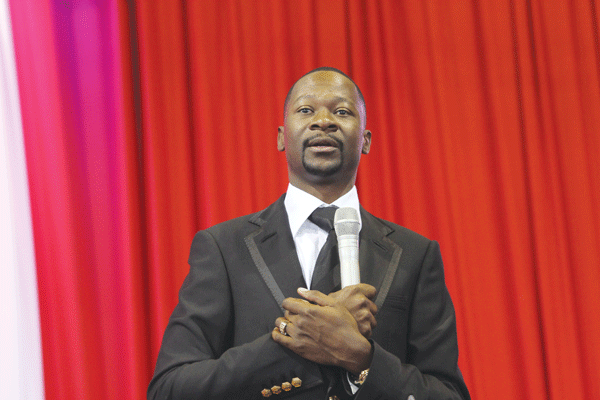
[ad_1]
BY NQOBANI NDLOVUTHE Supreme Court has ruled in favour of United Family International Church (UFIC) leader Emmanuel Makandiwa, who was facing a US$6,5 million lawsuit by Upenyu and Blessing Mashangwa over alleged fake prophecies, defamation and fraud.
Deputy Chief Justice Elizabeth Gwaunza, sitting with Justices Lavender Makone and Francis Bere, in a judgment delivered on Wednesday, said the Mashangwas’ appeal was frivolous and based on falsehoods that could not be sustained.
Makandiwa was dragged to the High Court in 2017 by the Mashangwas’, who accused the UFIC leader of causing them to lose their house in Marlborough, Harare, on the back of an alleged fake prophecy of a “debt cancellation miracle” by ZB Bank.
The couple wanted compensation of US$1 million being damages for defamation and mental health, an estimated US$4 million for fraud and misrepresentation, US$700 000 for their seized house and other sums of money for seeding to the church, all totalling US$6,5 million.
The couple claimed it contributed between US$1 000 and US$25 000 monthly to the UFIC, in pursuit of commensurate benefits promised by Makandiwa.
In February, 2019, High Court judge Justice Owen Tagu ruled against the couple.
However, the Supreme Court dismissed the appeal, with Gwaunza accusing the couple of falsehoods, citing as an example the Mashangwas’ claim that they stopped paying the ZB Bank loan on the basis of a prophecy made by Makandiwa that it was a “season of miraculous cancellation of debts”.
- Chamisa under fire over US$120K donation
- Mavhunga puts DeMbare into Chibuku quarterfinals
- Pension funds bet on Cabora Bassa oilfields
- Councils defy govt fire tender directive
Keep Reading
Gwaunza said the claims by the Mashangwas were not supported by facts.
“The reality on the ground which the appellants never controverted was that the property was at all material times owned by Carmeco Investments (Private) Limited (Carmeco), a separate persona from the appellants in terms of Deed of Transfer No 10763/2002 dated September 24, 2002. In that regard, the law relating to companies applies with full force and effect,” the judgment read.
The house was attached and sold for US$500 000 and the couple in its suit was demanding US$700 000 from Makandiwa, the figure being the alleged value of the listed property.
“The appellants cannot claim to have been prejudiced in respect of what they did not own,” Gwaunza said.
“In any event, as early as February 29, 2012, Carmeco had sold the property for US$800 000 to Nemajo Family Trust … The above illustration clearly demonstrates that the appellants pleaded falsehoods. In their notice of opposition to the application, the applicants did not contradict these facts.”
Gwaunza said the couple’s claims for compensation for defamation of character, fraud, misrepresentation and damages for mental health were also based on lies and frivolousness.
“The court a quo (lower court) examined each claim separately and gave reasons as to why it found each claim to be frivolous and vexatious,” the judgment added.
Follow Nqobani on Twitter @NqobaniNdlovu
[ad_2] Source link










